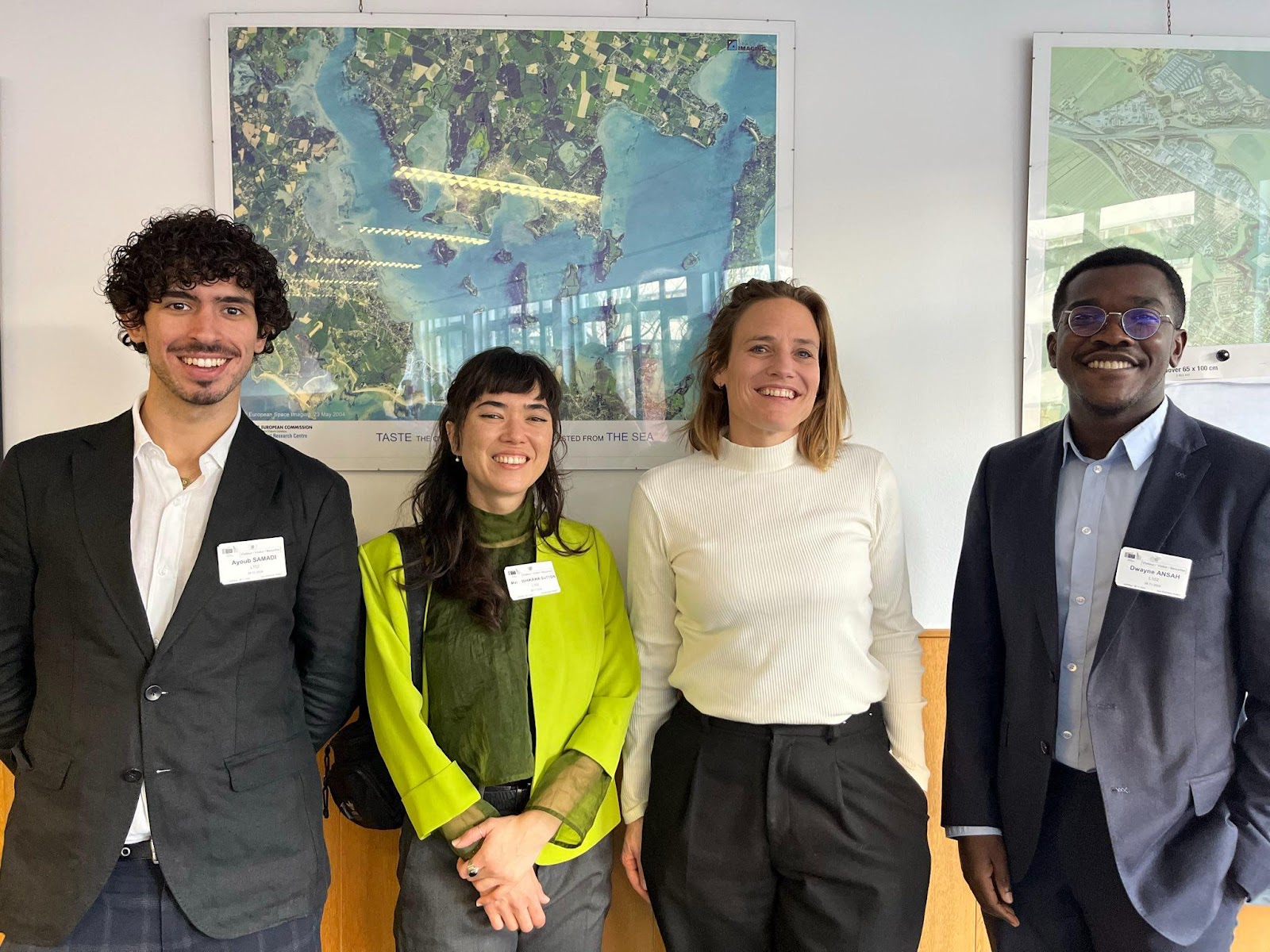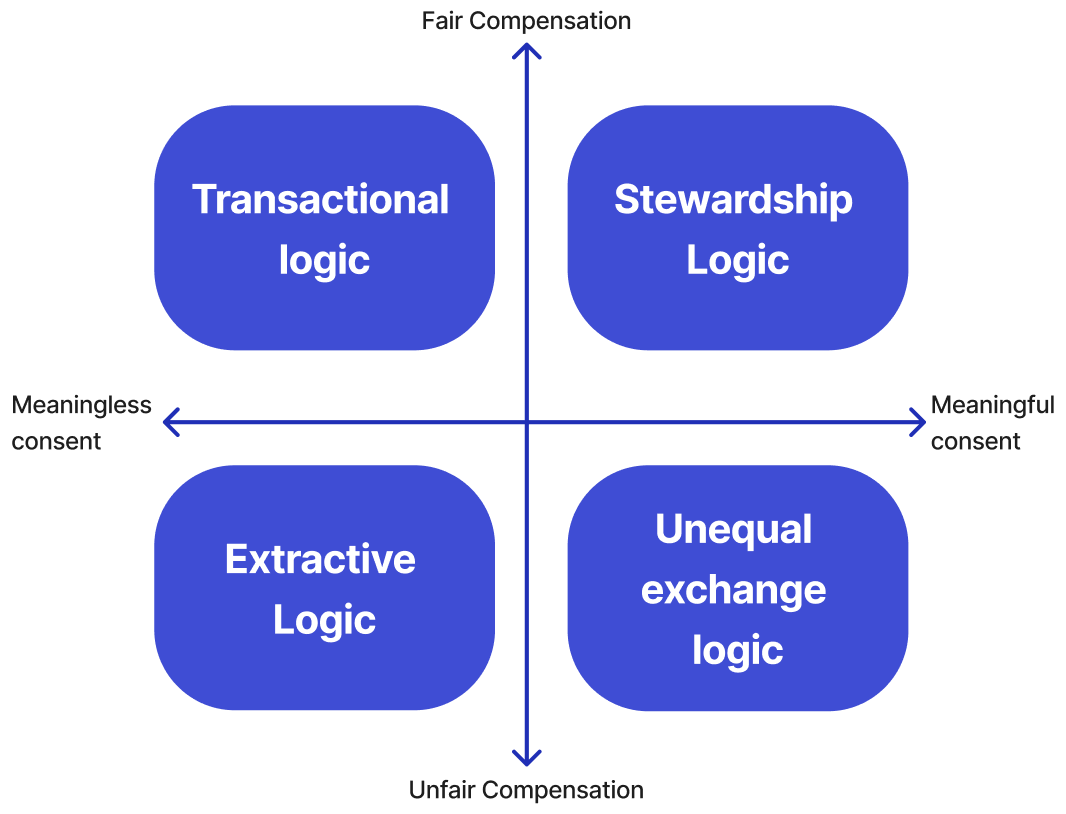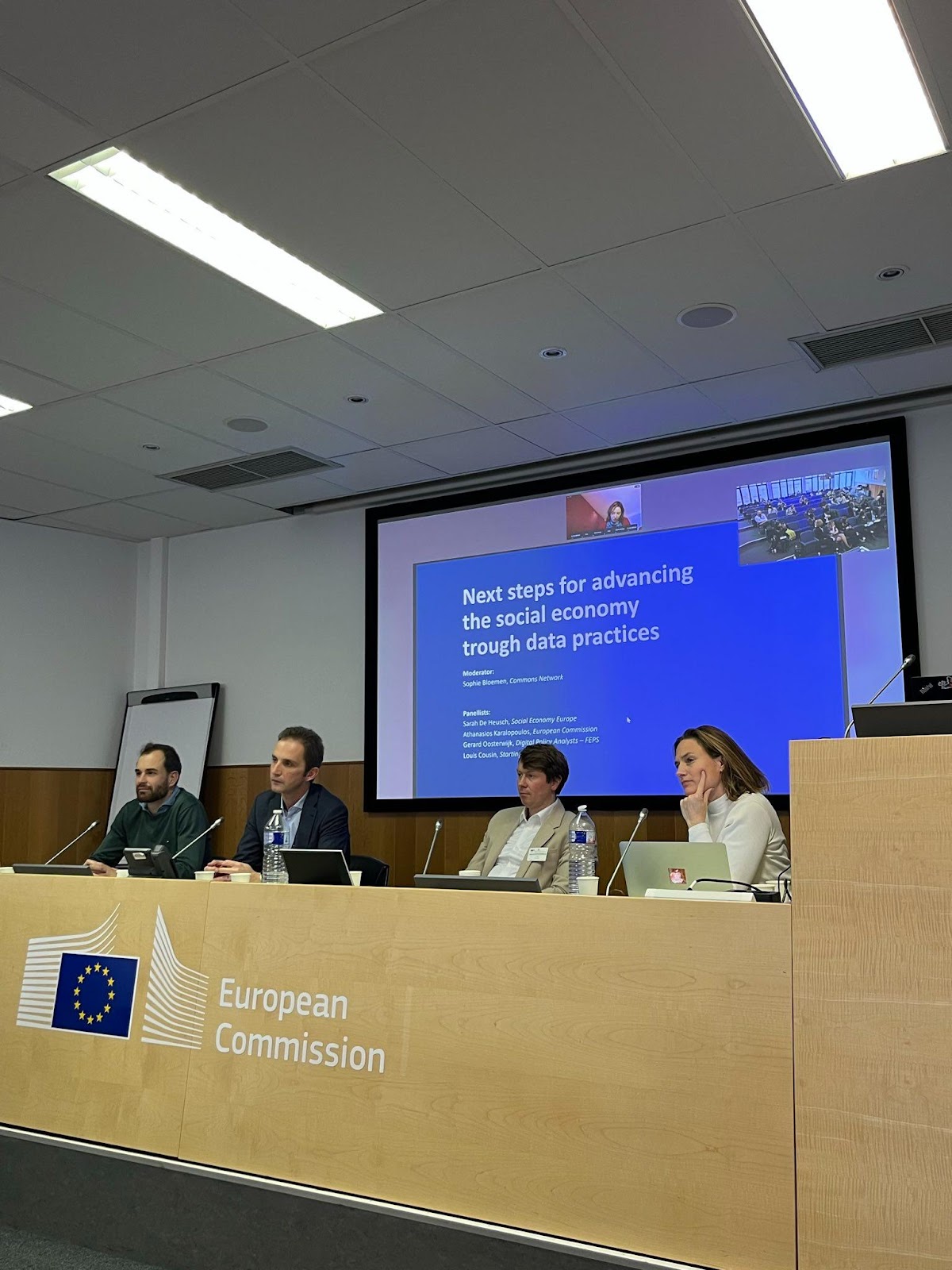Europe’s social economy spans a diverse range of businesses and initiatives, including cooperatives, associations and social enterprises. All embrace the primacy of people and the environment over profit, reinvestment towards the collective interest, and participatory and democratic governance. Data-driven social economy actors—such as health data cooperatives, platform cooperatives—recognize that access to and reuse of data can unlock new opportunities. For these organizations, data is integral to their operations. However, there is still much ambiguity around which data is useful, how it can be shared and reused, and how partnerships around data can be fostered. Both data-centric organizations and more traditional social economy organisations recognize the need to strengthen data collection, usage, and storage within the broader ecosystem.
How do we as a society use data for social objectives? How can social economy actors benefit from sharing data? And what are the conditions that are important in doing so? Working closely with the European Commission (Directorate General GROW) and committee of social economy actors, Commons Network and Waag Futurelab joined forces to develop a Code of Conduct. Through a participatory process of co-design and research the code was collaboratively developed. On the occasion of the launch of the EU Code of Conduct for Data Sharing in the Social Economy, Sophie, Dwayne, Ayoub, and Mai went to Brussels last week to present the code at the European Commission.

Ayoub, mai, Sophie, and Dwayne in Brussels.
The starting point for this Code of Conduct was the European Commission’s Social Economy Action Plan, which calls for strengthening the social economy. The Commission recognizes how digital technologies help facilitate growth of successful social economy initiatives across the EU and how “pioneering digital social enterprises are enabling digital transitions by making technology adaptable, affordable and accessible for example through digital commons and open source technologies.”
This Code of Conduct establishes a set of values and principles for how data should be managed and used for the benefit of the social economy, building on the existing EU regulatory framework and the values underlying the social economy. In addition to these guiding principles, the Code includes models and practical resources such as guidance documents, templates, and examples of best practices to support organizations in applying these standards.
Values for Data Sharing and Data Management:
- Democracy
- Life-centredness
- Trust
- Self-determination
- Inclusivity
- Equity
- Co-opetition
- Data sufficiency
Guidance on Data Management & Sharing – Approaches and Models
We also looked at the need for alternative models to the extractive practices of the current dominant model. What are the models aligned with the values as identified and what can we learn from the best practices ?
Types of data sharing arrangements and management practices. Existing approaches to data sharing – centralised and extractive

How can we govern data in a way that contributes to the public interest, while also ensuring a balance in the digital ecosystem that protects the interest of a wide variety of economic actors, communities, and data holders? Data stewardship involves various approaches that aim to address this question to varying degrees.
- Open data
- Data commons
- Data collaboratives
- Data altruism
These approaches underlie data intermediaries such as data cooperatives, data trusts and data sharing pools that are used by and hold further promise for the social economy. These intermediaries allow broader stakeholder participation in decision making concerning data access, control sharing and use, allowing both economy entities and individual data subjects to have greater agency.
Good Practices – Data Sharing in the Social Economy
We brought together a range of examples from daily data sharing, which stem from the manifold experiences of people working in the social economy across the EU and beyond. Three examples are
Final Presentation in Brussels

Sophie moderating a panel on ‘Next steps for advancing the social economy through data practices’
Waag Future Labe and Commons Network together with the social economy practitioner and experts presents the code in Brussels. Javier Creus, Founder & Strategy Director of Salus Coop (Spain); Marko Zevnik, Director / Managing Director of Sopotniki (Slovenia); and Thomas Broucqsault, Digital Projects Coordinator of Energie Partagée (France) presented what their organizations do, how they collect and leverage data to fulfill their missions, and the kinds of technical infrastructure they use to manage and share their data.
In the discussion about next steps we placed the code in the bigger context of the European economy and the need for digital sovereignty. We discussed the importance of alternative data management models and the role of the social economy.
Speakers Sarah de Heusch (Social Economy Europe), Louis Cousin (Startin’Blox) (Athanasios Karapoulos) (DG Grow European Commission) and Gerard Oosterwijk (FEPS) each gave their perspective on the urgency of exploring practices to overcome current power asymmetries and restore balance in the digital ecosystem. And on what more is needed to achieve more control and democracy for people as data subjects. The discussion ranged from the role of governments and the creation of a broader ecosystem and infrastructure that support intermediaries such as data cooperatives and data altruist organisations.
The representative for DG grow mentioned that Code marks the beginning of a process for a new way of data sharing, and that this social economy data perspective should be linked to overall EU Data Strategy. Well, that got our spirits up.
To be continued.
 ☰
☰